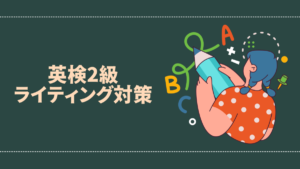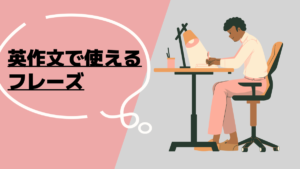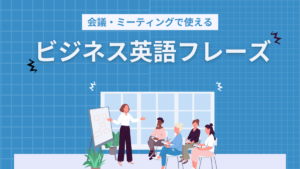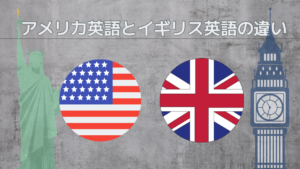薬は日常会話から医療現場まで幅広く使われる語彙です。英語には “medicine” をはじめ、“drug”“prescription”“pharmaceutical” など複数の単語があり、文脈に応じて使い分けが必要。この記事では基本語彙から用法、会話例、注意点まで詳しく解説します。
1. “薬” を指す基本英単語
薬という概念を表す主要な英語を理解しましょう。
1.1. medicine の意味と用法
“medicine” は最も汎用的に「薬」全般を指します。錠剤・シロップ・注射など形状を問わず医療用薬品全体を含む語です。
- 例:I take medicine for my allergy every morning.
1.2. drug / drugs のニュアンス
“drug” は医療用薬品のほか、違法薬物(narcotics)を指す場合もあるため、文脈に注意が必要です。医療文脈では “prescription drug” と限定することが多いです。
- 例:This drug is only available by prescription.
1.3. prescription / over-the-counter
- “prescription” は処方箋によってのみ入手できる薬。
- “over-the-counter (OTC)” はドラッグストアで自由に買える市販薬を指します。
- 例:You need a prescription to get antibiotics, but you can buy pain relievers over-the-counter.
2. 医療現場での専門用語
医師・薬剤師とのやり取りで役立つ専門語を押さえましょう。
2.1. pharmaceutical / pharmaceuticals
“pharmaceutical” は医薬品そのもの、または製薬業界を指すフォーマルな語。
- 例:Pharmaceutical companies invest heavily in research.
2.2. dosage / dosage form
“dosage” は「投与量」、 “dosage form” は「剤形」を指します。
- 例:The recommended dosage for adults is two tablets per day.
2.3. generic vs brand-name
- “generic drug” は後発医薬品(特許切れ後に製造)
- “brand-name drug” は製薬会社のブランド医薬品
- 例:Generic drugs are often less expensive than brand-name medications.
3. 薬に関する前置詞・構文
薬を説明するときの定型表現を覚えましょう。
3.1. take / prescribe / administer
- “take medicine”(薬を飲む/服用する)
- “prescribe medicine”(薬を処方する)
- “administer medicine”(医師・看護師が薬を投与する)
- 例:The doctor prescribed amoxicillin and instructed me to take it three times a day.
3.2. for / against / to
- “medicine for pain”(痛み止め)
- “vaccine against influenza”(インフルエンザ予防薬)
- “insulin to control blood sugar”(血糖値コントロール用インスリン)
- 例:This medicine is for treating high blood pressure.
4. 日常会話での例文
薬にまつわるシーン別の会話例を紹介します。
4.1. 体調を伝える
A: “I’ve had a headache since this morning.”
B: “You should take some painkillers.”
4.2. 薬を勧める/頼む
A: “Can you recommend an over-the-counter cold remedy?”
B: “Try this antihistamine; it works well for me.”
4.3. 医師とのやり取り
> Patient: “Are there any side effects?”
> Doctor: “Mild nausea or dizziness may occur. Contact me if they persist.”
5. 注意点とよくある誤用
薬を英語で扱う際の注意点をチェック。
5.1. drug のスラング混同
“drug” は合法・違法を含むため、医療文脈では “medication” や “medicine” を使うと安全です。
5.2. overdose と underdose
- “overdose” は過剰投与、
- “underdose” は投与量不足を指します。
- 例:An overdose of acetaminophen can damage the liver.
6. 薬の副作用を表す表現
副作用を伝えるフレーズを覚えておきましょう。
6.1. side effect(s)
“side effect” は「副作用」を指します。複数形もよく使います。
- 例:Drowsiness is a common side effect of antihistamines.
6.2. adverse reaction / allergic reaction
- “adverse reaction” は有害反応全般、
- “allergic reaction” はアレルギー反応を指します。
- 例:Stop taking the drug if you experience an allergic reaction like rashes or swelling.
7. リスニング&発音練習のコツ
薬関連の英語を正しく聞き取り、発音するためのポイントです。
7.1. medicine / medication の発音
- medicine:/ˈmɛd.ɪ.sən/
- medication:/ˌmɛd.ɪˈkeɪ.ʃən/
7.2. practice with pharmacy videos
薬局(pharmacy)や病院の案内動画を活用し、2秒遅れでシャドーイングすると自然に身につきます。
8. 薬に関するイディオム
薬をモチーフにした慣用句を覚えておくと会話が豊かになります。
8.1. bitter pill to swallow
「受け入れがたい事実」を表すイディオム。
> Losing the match was a bitter pill to swallow.
8.2. an apple a day keeps the doctor away
「一日一個のリンゴは医者いらず」健康を保つことを勧める格言です。
9. 実践的学習法
薬英語を効率よく学ぶための方法を紹介します。
9.1. フラッシュカードに用例を記載
単語と例文をセットでカード化し、通勤・通学時間に繰り返し学習。
9.2. 医療ドラマでシャドーイング
英語の医療ドラマを見て、医師と患者のやり取りを真似る練習をすると実践力が上がります。
10. まとめ
“medicine”“drug”“prescription drug”“pharmaceutical” など、薬を指す英単語は文脈で使い分けが必要です。日常会話から医療現場まで使える例文、注意点、副作用表現、イディオム、学習法を活用し、英語での薬関連コミュニケーションを自信を持って行いましょう。














